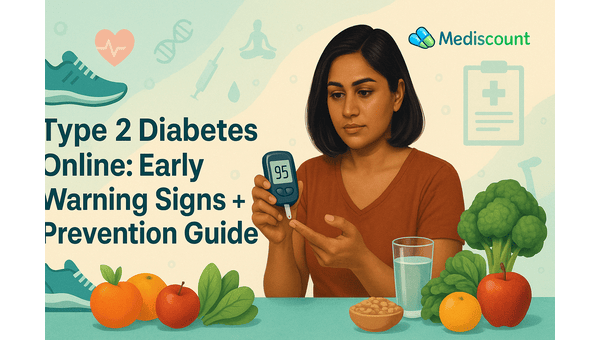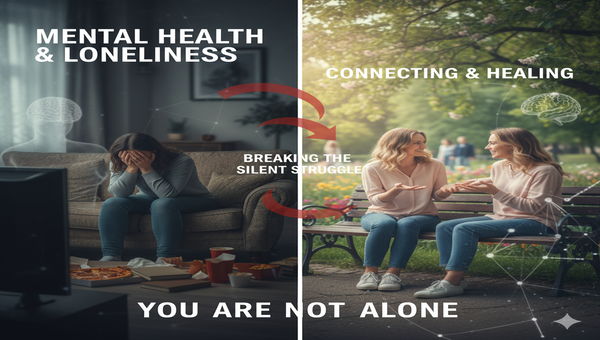Mental Health & Loneliness: Breaking the Silent Struggle
Sep 22, 2025
Mental Health & Loneliness: Breaking the Silent Struggle
In today’s hyper-connected digital world, people are more “online” than ever before. Yet, many individuals silently battle one of the biggest emotional challenges of our time — loneliness. Studies show that loneliness doesn’t just affect mood; it can deeply impact mental health, physical well-being, and even life expectancy.
Why Loneliness Matters
Loneliness is not simply being alone. It’s the painful gap between the social connections you want and the ones you actually have. Even in a crowded room or an active social media feed, a person can feel isolated and unseen.
-
Emotional effects: sadness, anxiety, and low self-worth
-
Mental effects: higher risk of depression, stress, and burnout
-
Physical effects: weaker immune system, disrupted sleep, and increased risk of heart disease
In fact, the World Health Organization has described loneliness as a “global public health concern.”
The Connection Between Loneliness and Mental Health
-
Depression & Anxiety – Persistent loneliness can trigger negative thoughts and self-doubt.
-
Stress & Burnout – Lack of emotional support makes it harder to cope with everyday challenges.
-
Cognitive Decline – Prolonged isolation is linked to memory problems and higher risk of dementia in older adults.
-
Addictive Behaviors – Some turn to alcohol, overeating, or excessive screen time to fill the void.
Signs You Might Be Struggling with Loneliness
-
Feeling disconnected even when around people
-
Avoiding social activities out of fear or fatigue
-
Difficulty concentrating due to overwhelming emotions
-
Trouble sleeping or feeling constantly tired
-
Craving meaningful conversations but not finding them
How to Overcome Loneliness & Protect Mental Health
✅ Reach out intentionally – Call a friend, join community groups, or volunteer. Genuine connections start with small steps.
✅ Limit passive scrolling – Social media can worsen feelings of comparison and isolation.
✅ Adopt healthy routines – Exercise, mindfulness, and hobbies boost mood and reduce stress.
✅ Practice self-compassion – Treat yourself kindly instead of judging your loneliness.
✅ Seek professional help – Therapists, counselors, or support groups can provide coping tools.
Building a Culture of Connection
Tackling loneliness isn’t just an individual responsibility — it’s a community effort. Workplaces, schools, and neighborhoods can play a huge role by:
-
Encouraging mental health awareness
-
Creating safe spaces for conversations
-
Promoting group activities that foster belonging
Final Thoughts
Loneliness is more than just a fleeting feeling; it’s a serious mental health challenge that deserves attention. The good news is, by opening up, seeking help, and building real connections, it’s possible to break free from the cycle of isolation.
Remember: You are not alone in feeling lonely. Reaching out could be the first step toward healing.
Recent Post

Mediscount's Guide to Better Digestion Online for Gut Health

Type 2 Diabetes Online: Early Warning Signs + Prevention Guide

High Blood Pressure – How to Lower It Naturally | Mediscount

How to Lose Weight Safely and Naturally: A Complete Guide by Mediscount

Top 10 Pain Relief Gels for Instant Relief from Muscle and Joint Pain

Top 10 Benefits of Creatine Monohydrate for Fitness and Brain Health

The Right Way to Take Creatine: Loading, Maintenance & Daily Usage Explained

Creatine Monohydrate: The Ultimate Workout Supplement for Strength and Performance

Power of Nature: A Complete Herbal Hair Oil Blend for Stronger, Healthier Hair

Daily Multivitamins, Multiminerals, and Antioxidants: The Foundation of Everyday Wellness


